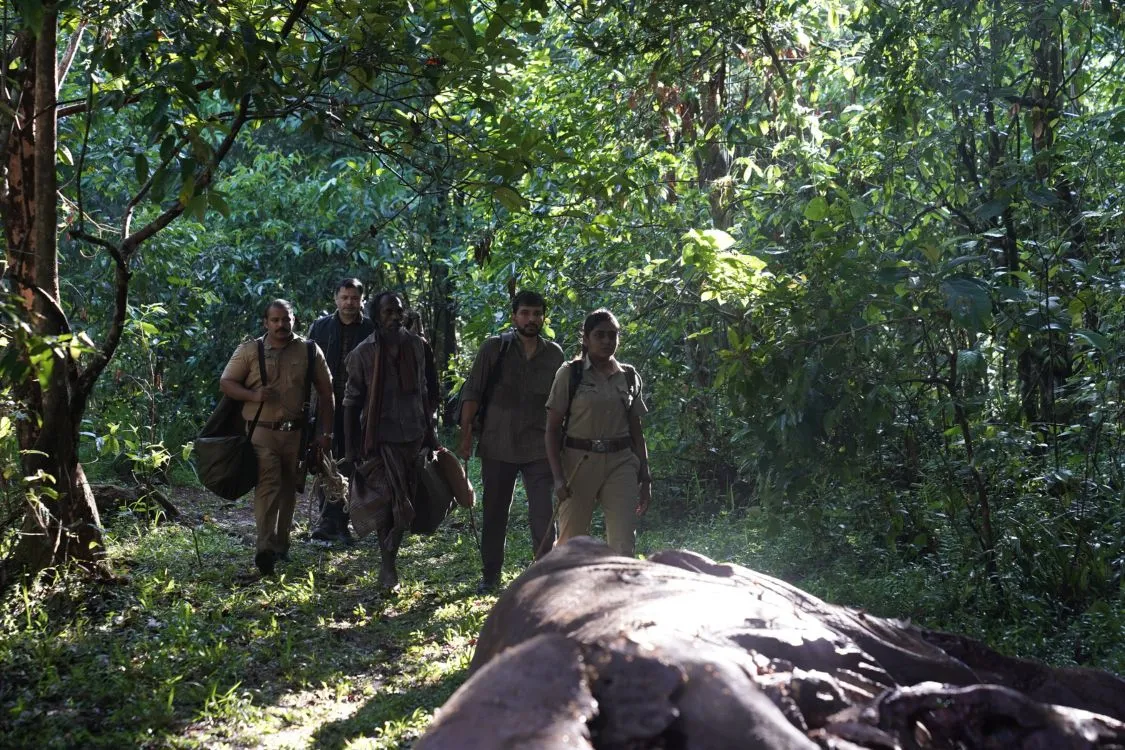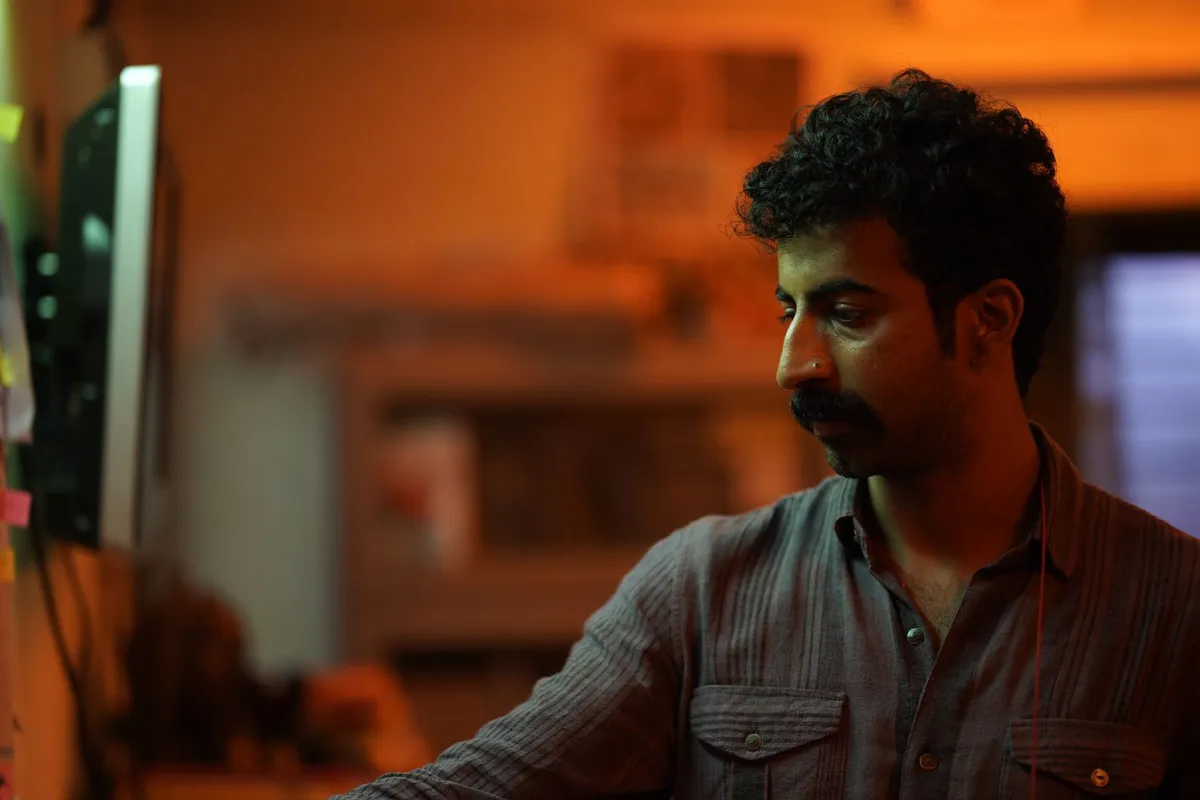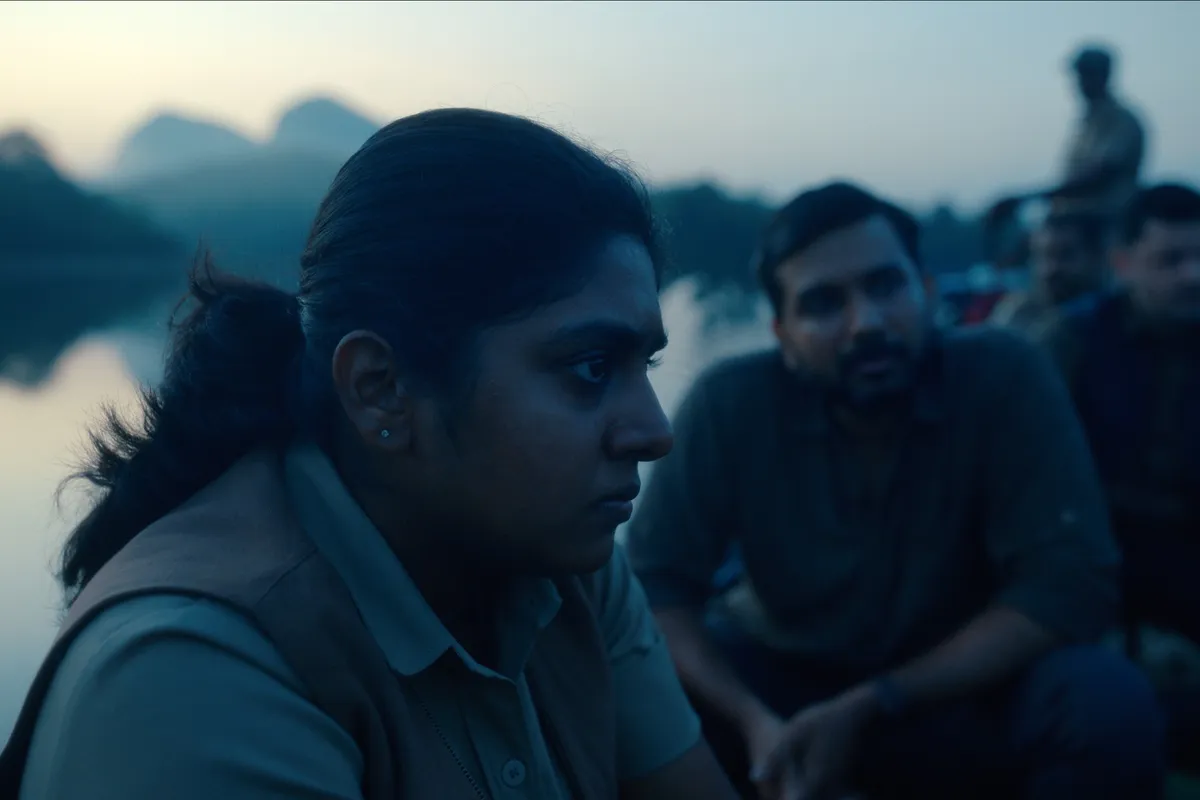Poacher director Richie Mehta talks to Graeme Green about his love of elephants, how he first learnt about the ivory trade in India, and what he hopes people will take away from watching Poacher, Amazon's new wildlife crime drama.
- "It's cold-blooded murder": The real-life story behind Poacher, Amazon's blockbuster wildlife crime drama
- Poacher: What it's about and where to watch the gritty new wildlife crime series
What drew you to the story of the 2015 poaching case?
What originally drew me was I was directing a documentary in 2015 titled India In A Day. In that film, people all over India were meant to shoot footage of their own lives on their phones on one particular day (Oct 10, 2015), upload it via Google to me, and I would take it and assemble it into a feature length documentary that profiles a day in the life of the country. One of the pieces of footage I received was of an ivory raid in Delhi. I was confused - did this happen today? I called the NGO that submitted it to me - the Wildlife Trust of India. They told me that they executed the largest ivory bust in Indian history on that day, after a nine-month investigation around the biggest wildlife smuggling ring in the country, and figured they would send me this footage, since it was my shoot day. I was flabbergasted.
I always loved elephants and cared deeply for wildlife conservation, but passively, from afar. And I knew that Google would never let me show this, as it was a crime scene. I told the person at WTI that I couldn’t use this footage for this documentary, but if she gave me a few years, I would come back and try to understand the entire case, the issues it addresses, and do a full piece on it. Poacher is that piece.
After my series Delhi Crime, I began to research this, and as I did, its importance increased day by day. I realised that this wasn’t just about saving elephants from getting assassinated, but it addressed dozens of issues ranging from our relationship to all other life on Earth, to Indigenous peoples and how they are integrated (or segregated) in society, to what the law of the jungle truly are (both the natural and asphalt one), and how they are ingrained in us. I realized that this story concerns everything that I hold dear.
- What is ivory?
- Ice ivory: how the rise of the mammoth tusk industry poses a new threat to elephants
- Is ivory banned in the UK?
- Asian elephant guide
How did you approach telling the story?
I approached it as a thriller as I was constructing it. I wanted to lean heavily on the genre, as it’s an issue that many are ambivalent about. Since the story happened to have the skeleton of a manhunt, I figured “Why not use that exciting framework to make this an easier watch?” It’s not much of a stretch, since there is so much danger prevalent in wildlife crime fighting.

Why do you think it was possible for poachers to kill so many elephants?
In this particular case, since poaching was contained since the mid 90s, it was a perfect storm of a lack of manpower and resources for scouting, and economic desperation that motivated a group of historical hunters.
What are your feelings towards those people who stood up and helped solve the case and tackle the problem?
This is what Poacher is truly about - not just the people who are a threat to species survival, but those who put themselves in the line of fire to protect those same species. I have immense respect and admiration for them.

Have you spent time with elephants in the wild?
I’ve had minimal encounters with elephants in the wild, by design. I discuss this in the series: Asian elephants particular dislike human encounters, and just want to be left alone. Each encounter is not by their choice and can very quickly end in disaster. Our best equation with them is to maintain our distance. But my most magical encounter was late at night, observing a mother and calf as they feasted on a type of clay found in a stream bed. I watched them for hours, and afterwards, they just glanced at me, then sauntered back into the darkness of the bush.
Do you love spending time with wildlife?
Yes, more and more as time goes on. The dense jungle teems with life, but if you stand still in that place, eventually you will literally be eaten alive. That idea is obviously unsettling, but just to be guest in that environment can be magical. I’m also cognizant of the damage we do as a species when we enter those spaces. The nature of how we trample, for example, has changed over time, and it takes a great amount of energy to have minimal impact. Also, I’m in the arts, so if a handful of people are able to go in without disturbing the ecosystem, I’d prefer it to be people of science who contribute to the welfare of that ecosystem.

Have you seen the effects of poaching first-hand?
Not personally, though we have recreated this in the series. I’ve not seen the effects of poaching first-hand with the animals, but I have with the humans, and it’s devastating.
What do you hope people take away from Poacher?
The overarching message is not subtle. But I hope people understand more about the complexity of the issues and they’re are inspired by the people who are giving up their lives to protect these species and ecosystems for the benefit of all of our children. Their underlying reasons for doing this are among the most selfless I have ever seen, and I hope that selflessness, despite the great personal consequences, rubs off on others. Wildlife crime fighting is also a very exciting way to spend one’s life.
What do you think the long-term impact of this particular poaching case has been in India?
The alteration in patrolling behaviour and frequency, more awareness at the plight of local Indigenous peoples, heightened vigilance. My hope now is a general public awareness as to how fragile the existence of a single species is.
Poacher is an 8-episode Amazon Original Series available on Amazon Prime Video.
Interview by Graeme Green | Main image: Richie Mehta, centre, at the Poacher blue carpet event. Credit: Prime Video.
